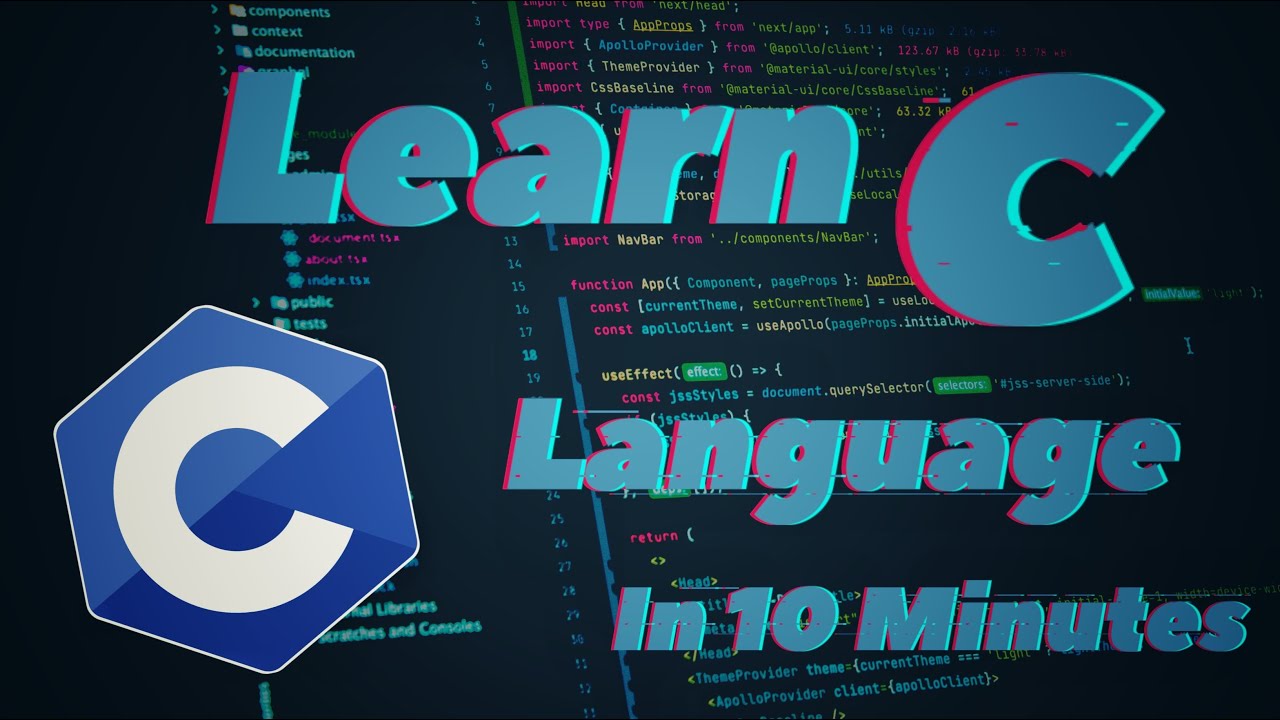جلسه اول - دوره آموزش زبان برنامه نویسی C | سطح مقدماتی - متوسط
Summary
TLDRThe video script delves into the history and significance of the C programming language, highlighting its origins from the B language, developed by Ken Thompson in the 1970s, and its further development by Dennis Ritchie. It discusses the language's features, including its general-purpose nature, low-level access to memory, and portability. The script also covers the evolution of C standards from ANSI C89 to the upcoming C2X, emphasizing the language's continued relevance in various software and systems, despite the emergence of newer programming languages.
Takeaways
- 😀 The session begins with an introduction to the history of the C programming language and its significance in the real world.
- 📚 C language has a rich history, evolving from the B language, with Dennis Ritchie being credited as its creator and Ken Thompson as a key contributor.
- 🔍 Dennis Ritchie is known as the 'father of the C programming language' and was also involved in the development of UNIX, while Ken Thompson is recognized for his work on UNIX and the B language.
- 🗓 The C programming language was officially standardized with the ANSI X3.159-1989 standard, also known as ISO/IEC 9899:1990, which was a significant milestone for the language.
- 💡 C is considered a 'general-purpose language' due to its widespread use in various software and systems, including operating systems and services.
- 🔧 C is described as a 'middle-level language' offering a balance between high-level and low-level programming, providing both high performance and hardware control.
- 🚀 The language's 'portability' is highlighted, emphasizing its ability to run on different platforms and architectures without the need for recompilation for each.
- 🔄 C is a compiled language, which contributes to its speed and efficiency, and is contrasted with assembly language, which is architecture-specific.
- 🌐 The script discusses the 'multi-paradigm' nature of C, meaning it supports various programming paradigms such as procedural, imperative, functional, and object-oriented.
- 🌟 The ongoing relevance and critical role of C in modern programming are emphasized, despite the existence of newer languages, due to its performance and control capabilities.
- 📈 The script also touches on the evolution of standards for the C language, with updates and revisions aimed at addressing issues and adding new features over time.
Q & A
What is the main topic of the first session of the C language training course?
-The main topic of the first session is to explore the history of the C language, its real-world applications, services, and software that still use the C programming language, and to review the standards of the C programming language.
Who is credited with the creation of the C programming language?
-Dennis Ritchie is credited with the creation of the C programming language.
What was the original purpose of the B language from which C language derived?
-The B language was created by Ken Thompson in the 1970s and was used for system programming, which C later improved upon by adding features not present in B.
What is the significance of Dennis Ritchie in the history of C programming language?
-Dennis Ritchie is considered the father of the C programming language and was also involved in the development of UNIX alongside Ken Thompson.
What does the term 'General Purpose Language' mean in the context of C?
-A 'General Purpose Language' refers to the versatility of C, which can be used to develop a wide range of software, systems, and services, including operating systems and applications that are still in use today.
How is the C language described in terms of its level of access and control over hardware?
-The C language is described as a 'Middle-Level Language' because it provides a balance between high-level and low-level programming, allowing for efficient hardware access and control.
What is the concept of 'portability' in the context of C programming language?
-Portability in C refers to the ability of C code to run on different platforms and architectures without needing to be rewritten for each specific environment, unlike assembly language which is sensitive to architecture.
What are some of the paradigms supported by the C programming language?
-C supports multiple paradigms including procedural programming, imperative programming, and to some extent, object-oriented programming through the use of structs and functions.
Why is the C programming language still relevant and widely used today?
-The C programming language is still relevant due to its performance, efficiency, and the vast amount of legacy systems and software that rely on it, as well as its role in the development of many modern programming languages and systems.
What is the role of standards in the development and usage of the C programming language?
-Standards, such as those provided by the American National Standards Institute (ANSI) and the International Organization for Standardization (ISO), define the rules and features of the C language, ensuring consistency and compatibility across different implementations.
Can you provide an example of how a new feature was introduced in the C language through a standard?
-An example is the introduction of the Boolean data type and headers in the C99 standard, which added new features and improved the language's capabilities.
What is the importance of the C language in the development of modern operating systems and software?
-The C language has been fundamental in the development of many operating systems like UNIX and Windows, as well as numerous software applications and protocols, showcasing its enduring importance in the field of computing.
Outlines

This section is available to paid users only. Please upgrade to access this part.
Upgrade NowMindmap

This section is available to paid users only. Please upgrade to access this part.
Upgrade NowKeywords

This section is available to paid users only. Please upgrade to access this part.
Upgrade NowHighlights

This section is available to paid users only. Please upgrade to access this part.
Upgrade NowTranscripts

This section is available to paid users only. Please upgrade to access this part.
Upgrade NowBrowse More Related Video

Learn C Language In 10 Minutes!! C Language Tutorial

C_01 Introduction to C Language | C Programming Tutorials

The Rise of Unix. The Seeds of its Fall.

A Brief Introduction to C

UNIX: Making Computers Easier To Use -- AT&T Archives film from 1982, Bell Laboratories

C++ (A Linguagem Imortal de Verdade) // Dicionário do Programador
5.0 / 5 (0 votes)